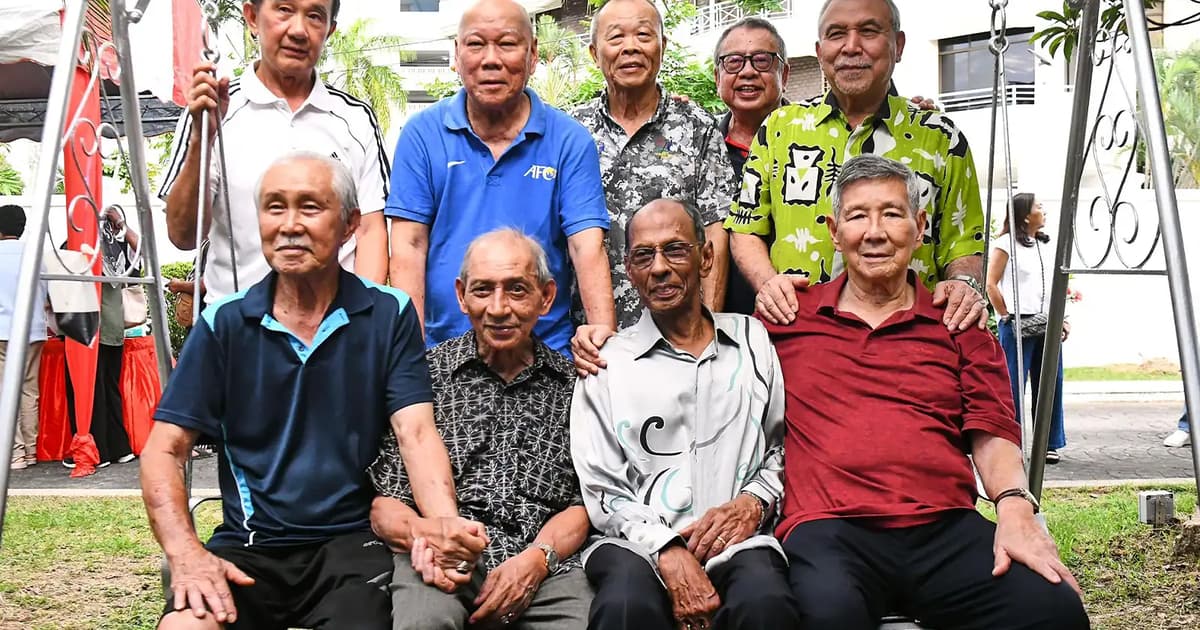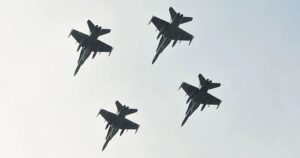
The applause of old stadiums may have faded, but the spirit of Malaysia’s football greats came alive again in Penang.
For one evening, time seemed to rewind — bringing back the camaraderie, the joy, and the memories of an era when football truly bound Malaysians together.
At a dinner following a recent friendly between the South China youth team and the Penang Chinese Recreation Club, legends Soh Chin Ann, Dell Akbar Khan, Lim Fong Kee, Looi Loon Teik, Soo Toh Kim Poh and Shukor Salleh came together once more.
They were joined by an old rival — Burma’s celebrated goalkeeper Tin Aung — whose presence evoked memories of Southeast Asia’s fiercest but respectful footballing battles.
It was more than a reunion. It was a reminder of when Malaysian football stood for belonging and devotion, played for the love of country rather than reward.

Fong Kee, Malaysia’s former national goalkeeper, captured that spirit: “In our time, there were no cash prizes or big rewards. We played because we loved the game, and because we wanted to make Malaysia proud.”
There was no talk of race either. “On the field, we never thought of ourselves as Malay, Chinese or Indian. We were just Malaysians. That was the real strength of the team.”
That bond fuelled the Malaysian sides of the 1970s and 80s, who packed stadiums in the Merdeka Tournament and turned football into a living expression of Malaysia Day long before the holiday was declared.

Rivals in respect
Tin Aung stood as a living reminder of those clashes.
Dubbed the “White Angels” for their all-white kit, Burma, in its golden age, ruled Southeast Asian football from 1965 to 1973.
They finished runners-up at the 1968 Asian Cup in Tehran and earned the fair play award at the 1972 Munich Olympics — the same stage where Malaysia made its Olympic debut.
“Facing Burma was like looking in a mirror,” said Fong Kee. “The same hunger, the same spirit. That rivalry lifted both our games.”
Packed Merdeka Tournament crowds saw more than just Malaysia against Burma.
They saw Southeast Asia proving itself — small nations showing they could compete with dignity and skill.
In many ways, it was a regional legacy, one that still speaks to the meaning of Malaysia Day.

The everyday Malaysia Day
To the Malaysian legends, football itself was Malaysia Day. “Different races, different backgrounds, but one heart for Malaysia,” Fong Kee said.
Their efforts often went unnoticed. After their playing days, many slipped back into ordinary jobs.
Yet they remain etched in memory as teammates who gave their all without expecting reward.
“You didn’t need money to give your best,” Fong Kee reflected. “Wearing the national jersey was enough motivation.”

A Malaysia Day reminder
As Malaysia marks its 62nd Malaysia Day anniversary, the message from Penang is clear: nationhood is not confined to parades or speeches.
It is lived, as these men once lived it on the pitch — as teammates, rivals, and brothers in boots.
Their reunion was a reminder that Malaysia Day’s meaning is strongest when belonging and honour come together, just as they once did under the floodlights of Stadium Merdeka.
It was not just about remembering the past — it was a quiet call to rediscover the shared spirit that once made every match a Malaysia Day.






